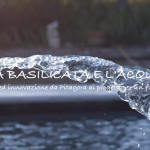GMÜND DECLARATION ON WATER CULTURAL LANDSCAPE 2021
Final Declaration of the International Meeting on “The heritage of the pond landscapes”
held on the 17th October 2021, in Gmünd NÖ (AT), Nové Hrady (CZ) and Třebon (CZ)
The participants of the meeting, including international experts of UNESCO, ICOMOS, IFLA, centres and associations together with national and non-governmental organizations, universities and local administrators:
thanking the organizers, NÖ.Regional.GmbH, Danube University Krems (AT), University of South Bohemia (CZ), International Traditional knowledge Institute Austria (ITKI) for having convened a meeting on The heritage of the pond landscapes with funding from the EU Interreg AT-CZ program and, in particular, the Archduke Andreas Salvador Habsburg-Lothringen, President of ITKI Austria, for promoting the meeting;
having examined and discussed the outstanding cultural landscape of the ponds on South Bohemia (CZ) and Waldviertel (AT);
expressing their deep interest for the amazing traditional technique used to create the ponds comprising micro, medium and large basins shaping the landscape of South Bohemia and Gmünd that are still functioning today, harvesting water, providing ecosystem services, creating micro-climes, supporting fish production, preventing floods, sequestering carbon, supporting the forest management and ensuring the human well-being;
acknowledging that the building of the ponds, involving rare and ancient local practices, was greatly intensified in the XVI century, when over 500 ponds were created, averaging one hectare in size, with some reaching up to hundreds of hectares, many of which remain;
recognizing that this traditional practice of gathering of rain water, utilizing man-made ponds, naturalistic engineering including dams with underwater valves and nature-based solutions have resulted in enormously productive landscapes of considerable beauty and are invaluable in terms of food production, agriculture, forestry, fishing, leisure and other cultural purposes including health, well-being and a strong sense of identity;
considering that it is important today to recognize, in addition to the environmental productivity of the pond landscape, its social and cultural significance as a common good to be enjoyed by all, as well as its unique and enduring exemplar from which more sustainable approaches to water management can be learned to better serve future generations;
being aware that in order continue to manage and protect pond landscapes and not destroy this important heritage or lose the capacity to generate appropriate and innovative solutions based on this knowledge and know how, it is vital to invest in the local and traditional knowledge of the region and beyond and to share best practice globally;
acknowledging that EU and others international resolutions recognize the vital importance of water management as an integral part of the holistic approach required to address environmental, physical, social, economic and aesthetic global challenges;
taking into account the strong desire of local communities and administrative representatives to develop and adopt the best possible water management policies and practices to preserve and transform landscapes to improve living conditions based on global sharing opportunities and common goals;
recalling the United Nations 2030 Strategic Development Goals and in the context of the accelerating climate emergency, the growing recognition of the power of landscape to address these challenges, specifically the SDG 6: clean water and sanitation and SDG 13 Climate Action, SDG2: Zero Hunger, SDG3: Good Health and Well-being, SDG 11: Sustainable Cities and Communities, SDG 13 Climate Action and SDG 14 Life Below Water;
taking note of numerous initiatives at the international, national and local levels, to address risks relating to hydro-geology, ecosystem and biodiversity loss, water and food resources and the need to adopt appropriate water management in the context of sustainable development within the United Nations system and European investment in relationship to the post-Covid measures and the need to transition to zero carbon;
taking in account, the important collaboration between the Czech Republic and Austria with the University of South Bohemia (CZ), the International Traditional knowledge Institute Austria (AT) and the Danube University Krems (AT), in the picture of the EU Interreg AT-CZ-project on the landscape of the ponds;
further taking in account the success experience of Matera in South Italy where the UNESCO World Heritage list inscription based on the local water harvesting and management has allowed the urban regeneration from a completely abandoned city to a story of success and capital of the European Culture 2019;
having examined: the project of the West Midlands National Park in Great Britain proposing the regeneration of a compromised landscape by reimagining its river basins and investigating the hydrological and cultural potential of the Tame, Blythe and Stour; the project to make an inventory and assess the lakes of the Latvia’s landscape; the project of Gualchiere in Florence (Italy) to restore the water mills and create a centre on the Arno river;
stating the importance of preserving the cultural heritage and that the heritage and the UNESCO World Heritage list inscription are a leverage for economic development;
affirming that the pond’s landscape in the regions of South Bohemia and Lower Austria has a great importance for:
– the quality of daily life, cultural identity and enhancing wellbeing
– reacting in an adaptive and participatory way to risk and catastrophes
– combating desertification, land degradation and drought, preserving biological diversity and mitigating the effects of
climate change;
– preserving diversity, tangible and intangible heritage assets;
– ensuring the ecosystems’ continuity in providing services to communities;
call upon to realize the UNESCO World Heritage list inscription of the cultural landscape of the heritage of the ponds of South Bohemia and Lower Austria;
further call upon to use the experience of ponds of South Bohemia and Lower Austria to realize European projects of water harvesting, flood protection and nature sensitive landscaping solutions including the West Midlands National Park in Great Britain and further projects in the lake landscape in Latvia;
congratulates the Municipality of Florence for the Gualchiere project and encourages it in the creation of the centre of traditional knowledge and observatory of the Arno River;
congratulates the International President of ITKI Elizabeth Nobrega Tsakiroglou for the decision to convoke an international competition among artist to present annually a monument to Nature in recognition of the close relationship between Earth and humankind that characterize the “Anthropocene”. ITKI will select the place where nature has entered in harmonic symbiosis with humankind;
the organization of further meetings to examine successful experiences and sustainable projects in the water landscape heritage in order to address the post Covid and others funds for the ecological and cultural transition to protect the European Landscape through interventions based on nature, traditional knowledge and their innovative and multi-faceted use.
declaration-on-water-cultural-landscape-gmund










